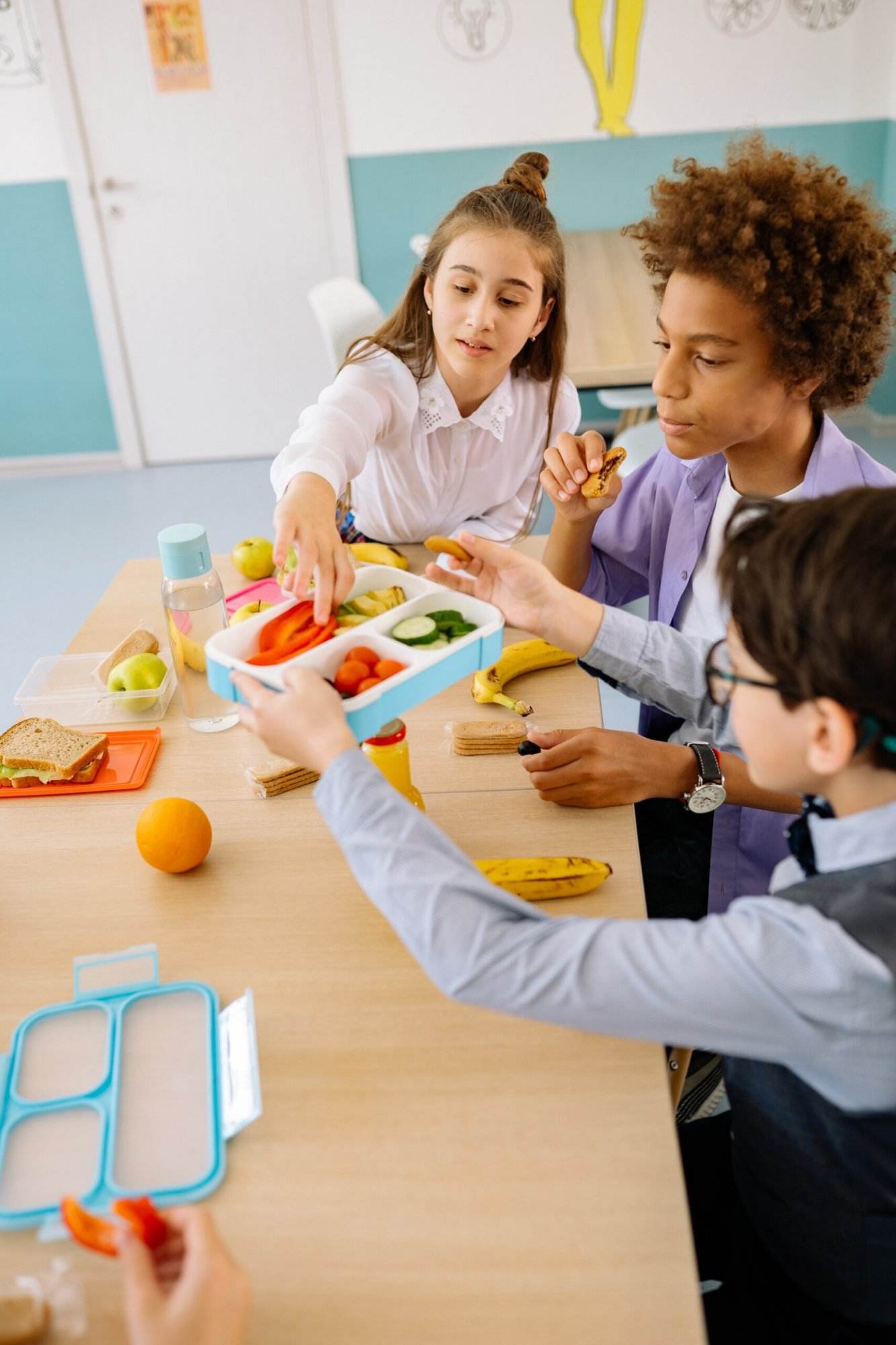It’s back to school time, and making sure our kids are well fed is priority number one regarding good health and a good education. One programme that is helping make that a reality for thousands of children across the city is the Food for Life Award. This evidence-based project, set up by the Soil Association, brings schools, nurseries, hospitals, care homes, and their surrounding communities together around the core ethos of healthy, tasty and sustainable food.
This work is supported by Eat Smart Sheffield, a Learn Sheffield programme commissioned by Sheffield City Council. With over 70 schools and early years settings signed up across Sheffield, we want to see every one of them achieve a Bronze or Silver Food for Life Award in the next few years.
What are the Food for Life Awards?
A Food for Life Schools Award helps schools provide healthy school meals, fun food education, lasting health impacts and positively impact pupils, parents and the wider community. It’s not just about making sure kids’ stomachs aren’t rumbling in lessons but having a lasting impact on their futures and the world around them.
The Food for Life (FFL) programme is backed by independent research. The findings of many studies show the project supports improved health, well-being and motivation for pupils and staff. It encourages pupils to participate in enrichment activities. It empowers them to make their own choices to improve their well-being. Plus, it helps connect pupils and staff with parents and their local community.
Schools that sign up receive an awards package with resources and access to FFL support. Schools support their pupils and their families, but it also helps the schools. The programme meets Ofsted requirements, and It supports the current national Plan for Public Procurement, which encourages the use of British-grown produce and food in schools.
There is a Bronze, Silver and Gold Award that schools can work towards. Each stage has a different level of commitment across the FFL’s four areas: Food Quality, Food Leadership & Food Culture, Food Education and Community & Partnerships. Bronze award winners, for example, may show that their school meals are healthy and use seasonal ingredients that are at least 75% freshly prepared. Gold winners will achieve their goals by serving healthy, ethical food that uses lots of local ingredients and is animal and climate-friendly, including a minimum of 15% organic and 5% free-range.
Why is Food & Food Education so vital for our kids?
The programme has a significant impact because it focuses on feeding our kids nutritious food and helping them develop better relationships with diet and wellbeing. The independent studies on FFL show some key evidence for supporting this initiative.
Health & Hungry
Pupils in Food for Life schools are getting more veg than their peers in comparable schools not taking part. They are twice as likely to eat five a day, a third less likely to eat no fruit or vegetables, and they all eat significantly more fruit and vegetables at home. The parents are eating more good stuff, too, with 45% reporting eating more vegetables due to their child’s involvement in FFL. A more nutritious diet improves concentration, helps with cognitive development and improves long-term health outcomes for all, reducing the risk of cancer, diabetes and heart disease.
Sadly, it’s not just about better food, but food full stop. Many children go to school without breakfast; how can we expect them to learn when hungry? Last year, a teacher survey saw 80 per cent of teachers reporting a significant increase in children coming to school without eating. Teachers said that 88 per cent of children who come in hungry show excessive tiredness at school, with 84 per cent easily distracted in class and 74 per cent exhibiting disruptive behaviour. If we want our kids to learn, they must be fed; FFL and free school meals can help bridge that gap.
Free school meal take-up increased by an average of 13 percentage points over two years in Food for Life schools. Evidence suggests that FFL contributes to helping ‘close the gap’ for disadvantaged children in terms of their health and academic attainment. Sheffield City Council has introduced auto-enrollment for free school meals, so families who appear to qualify but haven’t applied don’t fall through the cracks.
Benefits to the wider community
Of course, schools also have many additional benefits when participating in the FFL scheme. Research by the New Economics Foundation demonstrated £3 in social return for every £1 invested in Food for Life Served Here menus. This return benefits local businesses and local employees, strengthening the local economy. Furthermore, research from UWE Bristol found Food for Life multi-setting programmes created considerable value for health, education and the environment in addition to the economy, with a social return of £4.41 for every £1 spent.
The scheme incentivises caterers to source more sustainably sourced, ethical and local produce, especially if schools hope to achieve the Gold Award. Significant evidence shows that locally sourced food reduces production and transportation emissions, can encourage more sustainable practices such as permaculture and organic growing, and can increase biodiversity and community health.
Let’s get Sheffield to Silver
In Sheffield, over 70 primary and secondary schools and early years settings have signed up for the Food for Life Awards. So far, 15 schools have achieved the Bronze award and 1 the Silver (Well done Lowedges Junior Academy). But we want all our schools to achieve at least Bronze or Silver in the next few years.
There are several key ways individuals and organisations can help their local school pupils get more involved in food and learn about growing and cooking. Firstly, parents, carers and guardians can get involved directly with the kids through your school’s current programmes or volunteering to start one. Whether helping out in a garden project, cooking club or simply chaperoning with teachers, getting involved in your children’s school can really boost their knowledge and enjoyment in class.
If you are an allotment holder or gardener, can you offer your knowledge to a local school to help them learn how to grow? Even a square meter garden can produce a surprising amount of veg and fruit and allow the children to grow a passion for growing! Or if you work on a farm or garden, could you spare some space and teaching? Getting children interested in gardening and farming from an early age can show them it’s a viable career choice. For caterers and hospitality businesses, volunteering your space or expertise to teach children how to cook delicious, nutritious meals is incredibly rewarding.
If you want to do any of the above, contact your school directly to see if they are part of Food for Life and whether you can help. You can also contact ShefFood if you want to help partner up with similar organisations looking to bring better food to the people of Sheffield, including our children. Check out the Eat Smart Sheffield Website for even more ways you can get involved in providing the best for the children of Sheffield.

